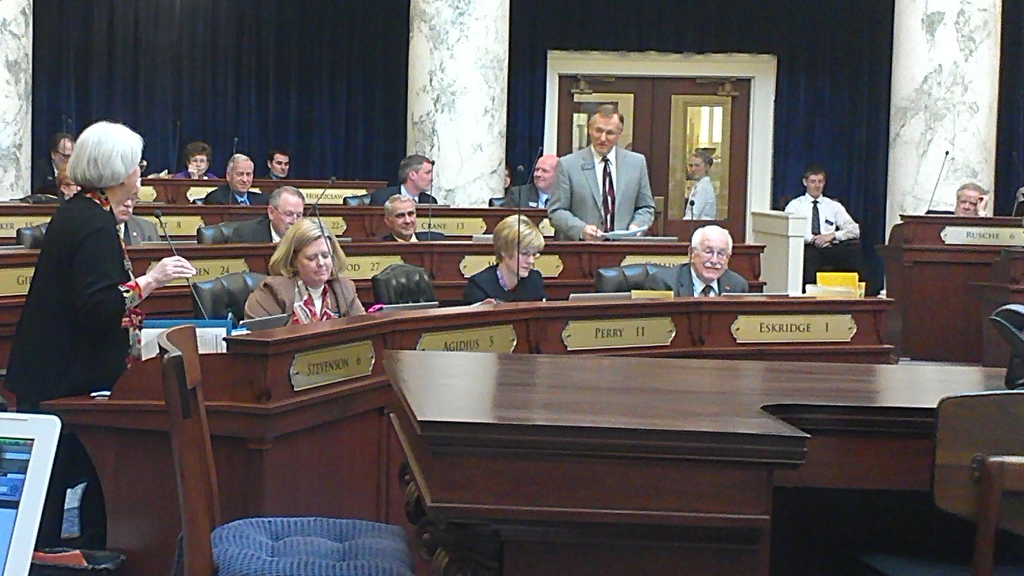
After 35 minutes of debate, and 25 hours after its introduction, the House passed a $20 million cut in the personal property tax, a tax on business equipment and furnishings.
Sponsored by the Idaho Association of Counties — and supported by the Idaho School Boards Association and the Idaho Association of School Administrators, among other groups — House Bill 315 enjoyed broad-based bipartisan support Tuesday afternoon. At one point, Boise City Council member Lauren McLean, a substitute for Boise Democratic Rep. Mat Erpelding, spoke in favor of the bill, followed by Lenore Barrett, R-Challis, one of the House’s stalwart tax hawks.
Ultimately, the bill passed 67-2, with only Democrats John Gannon of Boise and Shirley Ringo of Moscow voting no.
But the debate still revealed some of the divisions surrounding the personal property tax issue.
Some lawmakers openly said they’d prefer to fully eliminate the tax — echoing the sentiments of the Idaho Association of Commerce and Industry, a business lobbying group pushing for a $120 million repeal. House Majority Leader Mike Moyle, R-Star, a sponsor of HB 315, said he saw Tuesday’s bill as a step toward repeal.
Supporters also painted HB 315 as a compromise. It would eliminate the tax for 90 percent of Idaho businesses. It would also protect the public schools and local governments that rely on this tax source; according to State Tax Commission estimates, public schools collected $38.6 million in personal property taxes in 2012.

“(It’s a) good compromise,” said Marc Gibbs, R-Grace, citing his Southeast Idaho legislative district’s reliance on personal property tax collections. Gibbs specifically mentioned the Soda Springs School District — which derives 48 percent of its property taxes from business equipment and supplies, largely from phosphate processing plants in the area.
School officials say HB 315 protects their short- and long-term interests. The $20 million property tax cut would be completely reimbursed from state sales tax collections. In the long term, the partial repeal would keep the property tax base relatively intact, and making it easier for school districts to convince homeowners and farmers to support tax levies and bond issues in the future.
But on Tuesday — a week after voters in Soda Springs and 35 other school districts approved $107.8 million in property tax levies — Gannon argued that the Legislature was taking a step in the wrong direction. He objected to paying for property tax relief by siphoning $20 million off the sales tax base, a tax already used to support education.

HB 315 now heads to the Senate, which has a long history of amending and rewriting House-passed tax bills. Despite the broad base of stakeholder support for HB 315, Moyle is making no predictions for the future.
“I really don’t know, ‘cause it’s the Senate,” Moyle said after Tuesday’s vote. “When it goes to the Senate, your guess is as good as mine.”
